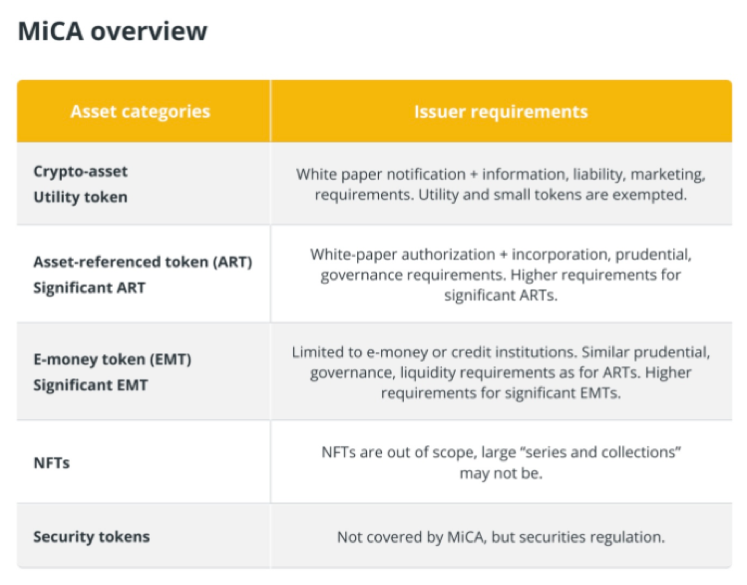MiCA: The Overall Look At EU's Crypto Rules
2023-08-31 07:25:25Although the Markets in Crypto-Assets legal framework of the European Union is not perfect, it offers a degree of clarity not seen in the US.

Source: watsonlaw.nl
While American regulators like Gary Gensler, the chair of the Securities and Exchange Commission, make deceptive claims that there's been clarity for years regarding cryptocurrencies, the European Union actually acted in April when it enacted the Markets in Crypto-Assets (MiCA) governing structure. Even while it wasn't flawless, it was a critical step in an appropriate direction for our business and a warning to the United States that it will fall behind if it keeps waiting and relies on outdated rules.
Regulators must remodel current legal and monetary safety frameworks in order to establish an advantageous setting for participants, much to how Bitcoin used old technological, economic, and financial notions to develop something new. Our current financial and regulatory systems have a lot of beneficial and reliable components.
An ETF Will Usher In An Era Of Change For Cryptocurrencies Like Bitcoin
On the contrary, there are many issues with the field of blockchain technology that the conventional legal structure does not adequately address. As a result, lawyers quarrel over an opportunity to interpret statements rather than adhering to clearly defined legislation, which wastes time and money. Web3 is still a remix of this conventional financial system, although one that aims to increase efficiency, transparency, and fairness for all players, despite the fact that its practical applications have shown significant promise.
MiCA: An Essential But Unimpressive Step Toward Regulation
Even though finance and securities legislation include complicated language, the problem is actually simpler than it seems. To put it briefly, our laws aim to stop people from hurting other people. Examples can include terrorists who donate or receive funds to support terrorist activities or con artists who make false promises to investors. It also entails making sure that authorized individuals and organizations are held responsible for adhering to a series of operational standards created throughout the course of the development of our contemporary financial markets.
The laws controlling these operating requirements are as follows, in a more technical sense:
1) Laws pertaining to money laundering and countering terrorism financing
2) Laws governing commodities and securities
3) Regulation of market infrastructure
Despite the SEC's assurance that current regulations adequately address these three difficulties, numerous aspects manage to elude these approximately 100-year-old definitions, rules, and sanctions. We can mostly blame two factors for this issue. The first is classifying digital assets. Are they securities or commodities, or do they belong to another class entirely? Digital tokens frequently display traits from one, both, or neither, posing a serious problem for current frameworks.

MiCA Overview. Source: Circle
The second is that traditional financial regulatory systems, which are slow and complicated, are unable to keep up with the pace of innovation. Governments are in charge of creating rules that are strong enough to deter wrongdoing and safeguard stakeholders, yet adaptable enough to take into account the developments provided by this developing sector. How are these governing bodies supposed to compete against smart contracts that can be created in a matter of minutes and subsequently modified the very next day to have entirely different logic and parameters?
Disclaimer: FameEX makes no representations on the accuracy or suitability of any official statements made by the exchange regarding the data in this area or any related financial advice.